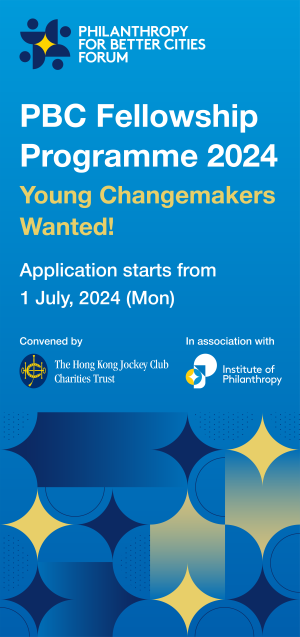One of Germany’s biggest foundations has warned that Ukraine is in dire need of ‘non traditional’ funding models, with short-term philanthropy having ‘exacerbated’ Ukraine’s volatile situation and international funding drying up by the end of the year.
Speaking off the back of the Ukraine Recovery Conference, held in Berlin, Germany, in mid-June, and a second ‘Summit on Peace’ held in Switzerland, Markus Lux, senior vice president at Robert Boscht Schifting, told Alliance that initiatives launched in 2022 were done so through ‘rapid, but also short-term funding’, as part of emergency aid. However, much of that funding has dried up, with many programmes no longer able to continue.
Ukraine’s civil society groups are now under pressure to find new funding to remain sustainable.
‘For this reason, international philanthropy in particular should coordinate better: to pool its resources impactful, to be attractive to potential additional donors who do not have the contacts in and experience in Ukraine, but above all to be more accessible to Ukrainian partners,’ says Lux.
He adds that non traditional financing is urgently needed to help solve an array of problems in Ukraine as it continues to suffer from Russia’s invasion, including the integration of veterans physically and mentally hurt from conflict, as well as a need for ‘ecological transformation under extreme conditions’ and the reconstruction of infrastructure.
With the Ukraine war coming to its third year, the Ukraine Recovery Conference held in Berlin saw a ‘foundations for Ukraine’ set up, with the aim of better coordinating fragmented philanthropy across Ukraine and supporting civil society as part of a rebuilding process already ongoing.
Lux says that Ukrainian civil society has showed ‘impressive resilience’ in wartime. To support civil society as it looks towards European integration, a ‘medium term funding perspective’ based on ‘trust and flexibility on the part of foundations’ is the next step, adding that ‘foreign donors need to have a high tolerance for ambiguity.’
Elena Davlikanova, a fellow in democracy and democratic resilience at the Center for European Policy Analysis, told Alliance that while Kyiv remains hopeful of international help to enable the rebuilding process, Ukrainian society is suffering a shortfall in expertise.
In particular, Ukraine suffers from the lack of therapists and rehab professionals needed to deal with war-based trauma.
‘Ukraine’s rich cultural heritage can [also] benefit from philanthropic endeavours aimed at preserving historical sites, promoting arts and culture, and safeguarding traditional practices,’ says Davlikanova, adding that a key area of educational reform is ‘overlooked’ by outsiders, but ‘alive and kicking’.
In May, an open letter signed by 121 of Ukraine’s journalists and media professionals said philanthropists from Ukraine’s international allies ‘are not prioritising’ the recovery of its broken media scene.
Challenges persist in building and reforming Ukraine’s democratic institutions as it seeks integration with Europe. Ukraine is currently a candidate for European Union membership, but must enact sweeping reforms before any potential full membership with the EU.
‘Looking forward, addressing corruption within the judiciary remains paramount for Ukraine’s reconstruction and development prospects,’ adds Davlikanova.
Shafi Musaddique is the news editor at Alliance magazine.





Comments (0)